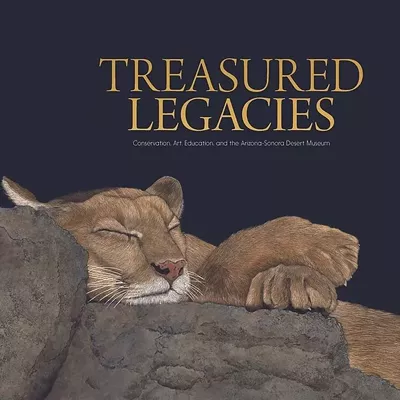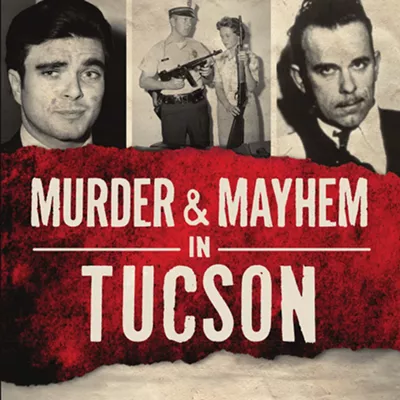I receive a veritable ton of printed books from publishers and writers kindly asking for reviews in the Tucson Weekly. (Hint: I have a Kindle. Just e-mail me a PDF, OK?) I'm unable to evaluate 90 percent for any number of reasons: limited space, limited schedule, the book has already been assigned to another reviewer, etc. But the main reason is that so many books, even from reputable publishing houses, are weak and not worth reading. So when All the Faces I Have Been: An Actor's Notebook arrived in my mailbox, I barely mustered the enthusiasm necessary to turn the very first page.
I'm so glad I did.
Amateur or formally untrained poetry isn't something I normally recommend, much less review. But occasionally a writer possesses an instinctive command of language and enough raw creativity to delight readers, which is certainly the case with William Killian's poetry debut. Even if it's a little naïve in its construction and purpose, All the Faces, published by Tucson-based Imago Press, is a fascinating life journal of a unique soul that only a hip city like Tucson could accommodate.
Killian is a jack of all trades—medical chaplain, actor, basketball free-throw specialist and many other things including, now, published poet. But his credentials prior to this book are nonexistent. He doesn't have a creative writing degree. All he possesses are a wealth of experience and talent with which to tell his stories.
But this isn't Killian's autobiography in verse, or so he insists in his introduction:
This is an actor's notebook, notes in the form of poems written from the perspective of characters I have played on and off set, backstage, and in the audience. ... As an actor and writer, the worst thing you could ask me is, "Did that really happen?" No, of course not. This is fiction, a book of poetry.
If Killian had ever spent more than a minute in a proper (i.e., university-sponsored) creative writing workshop or even just seen the Gwenyth Paltrow-starring film Sylvia (about autobiographical bard Sylvia Plath), he'd know that the postwar confessional poetry movement has forever eradicated the idea of poetry as being purely made up. Gone are the days of Poe and Whitman, making up visions and adventures wholesale. Today it's all about the poet and his or her individual experiences. The collectivism of poetry is a thing of the past. It's "I" or nothing.
Still, for the most part, Killian's book gathers dramatic roles he has inhabited throughout his theatrical career. Indeed, he explores in verse form the inner lives of characters he has played on stage and in film during a 50-year career. (Killian is a member of three actors unions, including SAG.) He provides no context for these character-based poems, no identification as to which character might be speaking. Fine, because you don't need a synopsis to process "Daily Rituals for Older Couples," which celebrates aging and its attendant anxieties with humor, as in this excerpt:
Disbelieve the kids when they tell you their ages,
re-check the living room photos from years ago,
look at old family albums. Cry. Plan the funeral,
songs and all, update the will with who gets what,
ask yourself why you went to school as long as you did.
Regret that you didn't make the kids go to school longer.
Further raising eyebrows and undermining his claim that the book's contents are fiction? Poems like, well, the one about his wife ("Linda Killian: A Forty-Nine Year Lover") and another relating his precocious view of the world at age 5 ("William L. Killian III"). They're wonderful, sentimental. If they're fiction, they don't read like it.
Killian is at his best when he spins a funny yet melancholy tale, as he does in the affecting "We Deliver." In it, the speaker, whose phone number is one digit off from Pizza Hut's, decides to go ahead and deliver a pie. The joke collapses at the door of the house, where members of the sherriff's department are grieving. I won't give the poem away except to say it's excellent and representative of Killian's deft touch.
I don't mean to suggest Killian reached this level of proficiency through sheer talent alone. He obviously put work into the endeavor of poetry. In addition to everything else he does, Killian also has a DVD out called Nail It, which explains his "nine-step process toward improving basketball free-throwing skills." Practice makes perfect, even in verse, and Killian knows it. And with All the Faces, Killian nails it.






